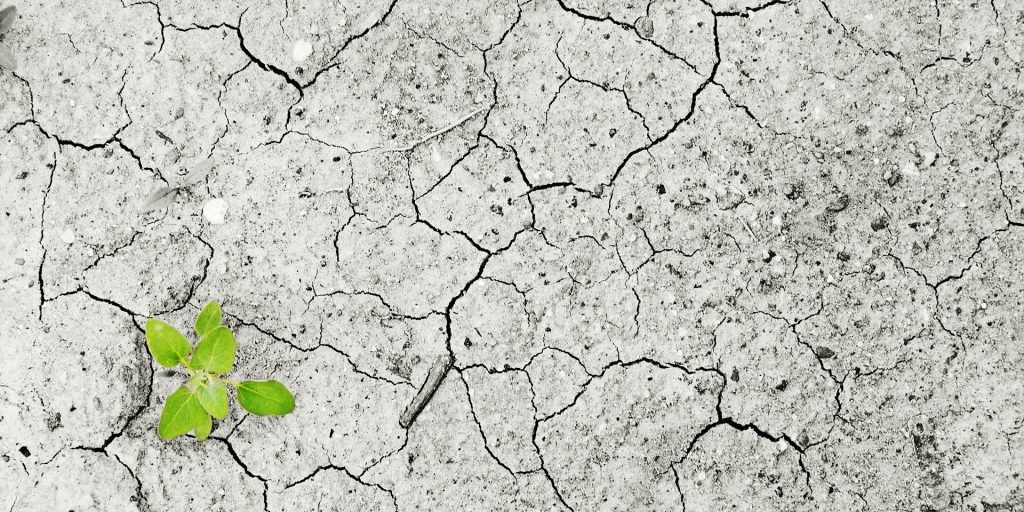RECIRCULATE and the climate crisis in Africa

In response to the UN’s recent report on Climate change in Africa, Nigel Paul reflects on how the project is linked to the continent’s need for a climate safe future.
On 26th October this year, the World Meteorological Organisation (WMO) published its report on the State of the Climate in Africa. It starts by describing the current challenges. Those include rainfall “remarkably below long-term means in Southern Africa” and “a dramatic shift in conditions ….. in the Greater Horn of Africa, from very dry conditions in 2018 and most of 2019 to floods and landslides associated with heavy rainfall in late 2019”. Looking ahead, the report describes Africa as “… an exposure and vulnerability “hot spot” for climate variability and change impact”. It notes that “… warming scenarios will have devastating effects on crop production and food security” and that “the poor are highly affected by extreme weather and climate events”.
Reading this report made me reflect on how RECIRCULATE is contributing to combating climate change and is impacts. It’s something that has been discussed in PARTICIPATE’s WhatsApp group as well. In fact, SDG 13 (Take urgent action to combat climate change and its impacts) has been at the heart of the project from the very beginning. Our GCRF funding explicitly required research focussed on delivering the sustainable development goals (SDGs). RECIRCULATE was designed to focus on SDG13 as well as SDG 6 (Ensure access to water and sanitation for all) and SDG 8 (Promote inclusive and sustainable economic growth, employment and decent work for all).
Despite that, the words “Climate Change”, or references to SDG13, are not very obvious on our website. Perhaps that is something we need to look at, but if you ‘read between the lines’ our focus on combatting climate change is still obvious. We talk about eco-innovation as “….contributing to a low carbon economy in all sectors”, and eco-innovation is at the heart of the whole project. It’s central to our Entrepreneurship & Innovation research and to our capacity strengthening around Knowledge Exchange and Engagement, especially through our links to the Centre for Global Eco-Innovation.
Beyond that, what about the links between the rest of our research and combatting climate change and its effects? There are excellent explanations of that in some of our PhD students’ impressive blogs. The most obvious link is with “Water for Energy Production”. Our research in to anaerobic digestion aims to reduce greenhouse gas emissions by replacing fossil fuels as energy sources. Eric Mensah’s recent blog also highlights how our “Water for Food Production” research is looking to reduce greenhouse gas emissions from agriculture.
“Water for Food Production” is also key to our research in to reducing the impacts of global heating. It’s actually worth a direct quote from the recent WMO report.
“One promising approach throughout the continent ….. has been to reduce poverty by promoting socioeconomic growth, in particular in the agricultural sector. In this sector, which employs 60% of Africa’s population, value-addition techniques using efficient and clean energy sources are reported to be capable of reducing poverty two to four times faster than growth in any other sector. Solar-powered, efficient micro-irrigation, for example, is increasing farm-level incomes by five to ten times, improving yields by up to 300% and reducing water usage by up to 90% while at the same time offsetting carbon emissions…..”
RECIRCULATE’s “Water for Food Production” team will certainly agree with that! Our researchers in Lancaster and at CSIR Crops Research Institute and CSIR Institute for Industrial Research are working on exactly the sort of eco-innovative irrigation technologies that are achieving what the WMO report describes. It also links back to RECIRCULATE’s focus on promoting “inclusive and sustainable economic growth, employment and decent work for all” (SDG 8). Working with the agricultural sector is clearly a very powerful way of achieving that goal. The pressing need to protect crop yields from the worst impact of climate change is also evident from the new report.
That leaves us to think about links between climate change and what we are doing under “Water for Sanitation and Health” and “Water, Pathogens & Health”. I was tempted to write that “Water for Sanitation and Health” is vital regardless of climate change. Of course, that’s true, just as it is for all our research, but the coronavirus pandemic has re-emphasised just how important access to clean water is. People being able to wash their hands has never been so much in the news. RECIRCULATE was written focussed on the role of clean water in preventing diarrhoeal diseases – water for basic hygiene needs as well as for drinking. Those diseases will never get the media coverage of COVID19, but they remain a massive challenge in low and medium income countries. There is a link to climate change there as well. A systematic review of ambient temperature and diarrhoeal diseases concluded that in low and medium income countries there was a 9% increase in diarrhoeal disease for each one degree Celsius of warming. The wider impacts of climate change may also bring further limits on access to water resources needed for drinking water and sanitation, as well as irrigation etc. That clearly fits with RECIRCULATE’s focus on making the best possible use of available water resources- that’s what is at the heart of the circular water economy.
Exploring these links between the WMO report and RECIRCULATE reminded me that combatting climate change and its impacts isn’t so much a separate SDG but part of everything we do, in RECIRCULATE and beyond. The scale of that challenge can be daunting and needs global action, above all from the major polluting countries. As I write this the news from the USA makes me feel more optimistic about global action of climate change. Of course, global action needs changes at regional, national and local level, which brings us back to RECIRCULATE. We have to be realistic; no single project can be anything other than one small step on a long journey to a climate safe future. But by working and learning together we are making one such step in the right direction.
 |
Professor Nigel Paul is a plant scientist at Lancaster University, UK. He was RECIRCULATE’s first director and moved to become the editor of The Flow as part of winding-down towards retirement. Nigel has a BSc from Reading University, UK and a PhD from University of Lancaster, UK. He has worked in university research, teaching and management for almost 40 years. |
All articles in The FLOW are published under a Creative Commons — Attribution/No derivatives license, for details please read the RECIRCULATE re-publishing guidelines.
